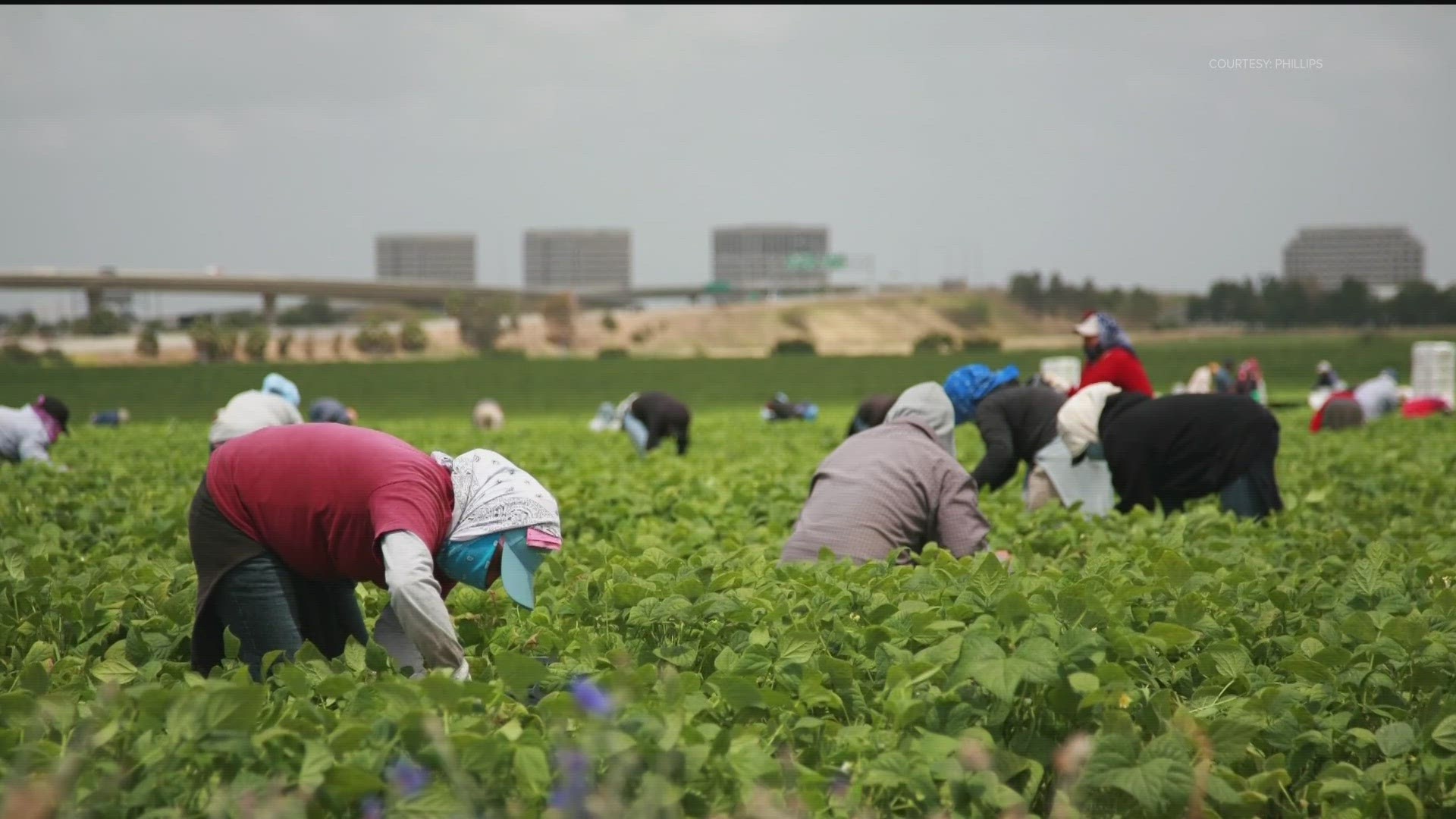ATLANTA — As Georgia's farmworkers work to provide for the state's agricultural needs, Emory nursing students will be better equipped to provide for their healthcare. For one student, the enhanced care is a personal win.
Emory University Nell Hodgson Woodruff School of Nursing is teaming up with health technology company Philips to help provide better healthcare services to southwest Georgia's farmworker community.
Philips is offering AEDs and portable, handheld ultrasound machines as part of Emory's Farm Worker Family Health Program, a collaborative initiative with several partners to deliver preventative care to farmworkers and their children throughout Colquitt, Tift, Brooks and Cook counties. In turn, Emory nursing students get hands-on experience.
Emory's Dr. Erin Ferranti said Philips is also supporting a mobile health unit.
"When we're there for two weeks every summer, we bring about 100 health professional students down, along with their faculty, and bring the clinic to the workers where they live," Ferranti said. "That will allow us to really extend our ability to provide care."
Brandon Magno is one of the nursing students who has taken part in the mobile clinic and said his personal calling to healthcare comes from his lived experience.
"This project kind of resonates a little bit for me. My mother and my tias and tios (aunts and uncles), were all part of the farmworker community in California," he explained. "When they immigrated here from Mexico they were just hoping to find jobs and looking for that resource and being able to provide for each other and provide for their family."
He said he's learned a lot just by listening and taking in their storytelling. It paints a picture of one's needs and lifestyle. As he learns from his family's lessons on life, he's learning at Emory how to medically treat others and care for one another.
"Just knowing that the farmworkers have a tasking day - it's just all the work that they experience with the healthcare hazards," he said about the mobile clinic experience.
Magno said by treating Georgia's farmworkers, nursing students get a holistic view of what patients actually face.
"I think it's just important to highlight where communication can get misinterpreted and just like the lack of insurance and transportation, just a lot of social determinants of health that can impact their health care," he explained.
That's why Mango believes equipping students with better technology will enhance their experience and their care - values they'll take into their practice even beyond their education.
"I think being able to go out into the areas that these farmworkers work in, we're understanding how their living conditions can actually impact their health care," he said. "So it's definitely something eye-opening and understanding that well within our scope of practice. I think we should be able to always continue on learning and being able to push ourselves to do better for each individual."

